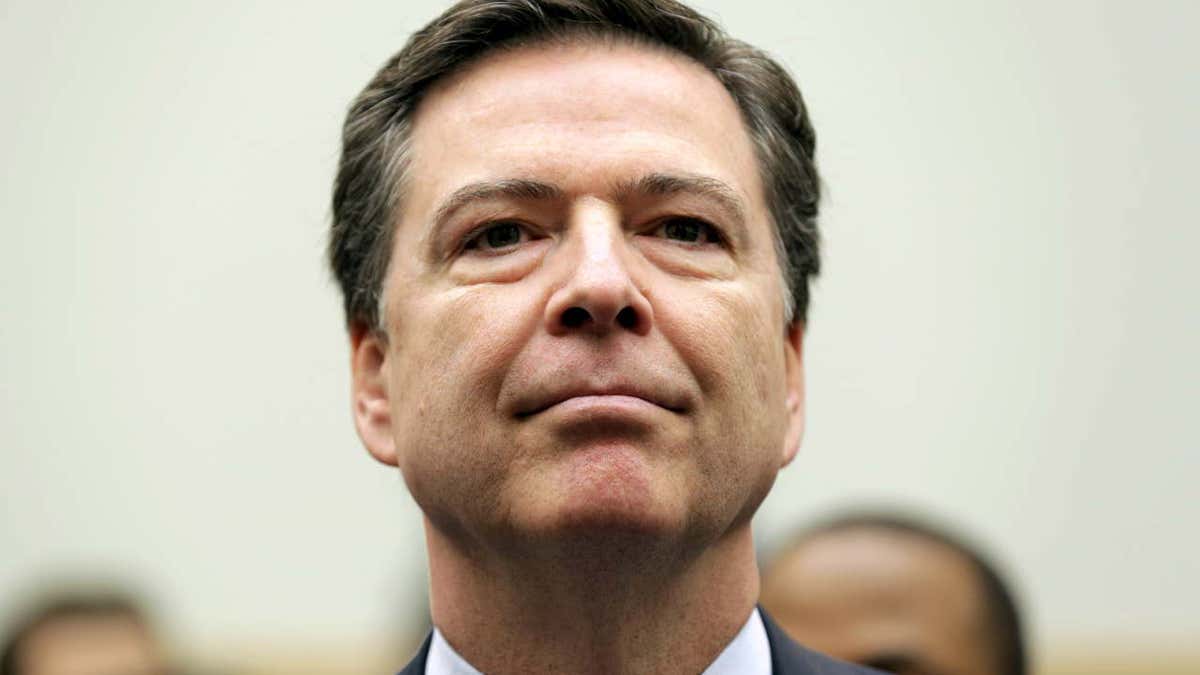
GLEN ALLEN, Va. – Mexican drug cartels are fueling the heroin epidemic that is sweeping the United States, according to the director of the FBI.
Addressing an audience of local residents and public safety officials at an opioid summit in suburban Virginia on Wednesday, James Comey said cartels are continuing to saturate the country with waves of “highly, highly pure” heroin.
The FBI chief, speaking alongside Drug Enforcement Administration acting administrator Chuck Rosenberg, painted the picture of a nationwide drug crisis that’s penetrating communities of all shapes and sizes. Fighting it requires a complex strategy that involves not only traditional law enforcement but also market economics.
“We cannot arrest our way out of this problem,” Comey said.
Mexican cartels have cornered the heroin market in the United States with an increasingly potent product and they are selling it cheaply in order to seize demand, according to Comey. He told the audience that in some instances, traffickers have even sold their heroin at a loss in order to gain market share.
In an effort to cut overhead costs and increase profits, law enforcement officials say that the cartels are relying less on trafficking heroin from South America and are instead ramping up production inside Mexico.
The latest data from the DEA show dramatic increases in Mexican opium poppy cultivation.
Production grew 160 percent from 2013 to 2014, according to DEA estimates. And that trend continued from 2014 to 2015 with a 64 percent increase in opium poppy cultivation in Mexico.
“Drug trafficking is a business and when you reduce costs of transportation, you're able to lower the price and increase the purity," Comey said.
But at the heart of the matter, according to the leaders of the FBI and DEA, is the widespread abuse of prescription painkillers, like oxycodone, which can serve as a gateway to heroin use.
Rosenberg noted that four out of five heroin users start with prescription pills.
"Sometimes we use words like 'epidemic' or 'unprecedented' or 'historic' in ways that are not really accurate," Rosenberg said. "This is unprecedented. This is an epidemic."
Data show that Rosenberg’s statement is not hyperbole.
According to the Centers for Disease Control and Prevention, prescription and illicit opioids – like heroin – accounted for 33,091 overdose deaths in 2015. That figure, which is part of the most recent U.S. overdose data available from the CDC, marks a quadrupling from 1999.
Presenting at the opioid summit on Wednesday, one local district health official said that preliminary 2016 data for the Commonwealth of Virginia show a 33 percent spike in opioid-related overdose deaths compared to 2015.
A contributing factor behind the overall spike in opioid-related overdose deaths, according to Rosenberg, is the prevalence of fentanyl. The synthetic opioid, which is up to 100 times more potent than morphine and up to 50 times more powerful than heroin, has exploded in popularity in the last several years, prompting the head of the DEA to call it “a game changer.”
That spike in popularity can be attributed to its high potency combined with its low cost, relative to pure heroin and prescription opiates.
The agency’s forensic laboratory system recorded a staggering 1,392 percent increase in fentanyl encounters from 2013 to 2015. And law enforcement officials are warning that drug traffickers are lacing heroin and knockoff prescription painkillers with the deadly synthetic, unbeknownst to the consumer.
Rosenberg said that the issue is causing law enforcement agencies to rethink protocols on handling illicit substances that may be or may contain fentanyl. If it were to come into contact with the skin, a concentrated dose of fentanyl, or one of its derivatives, could be fatal.
To first stave off the heroin epidemic, Comey and Rosenberg said that the FBI and DEA’s enforcement strategy ultimately seeks to crush the international cartels and, in doing so, drive up the cost of illegal drugs for consumers.
“Our job is to try to crack down on the supply, literally, to be very blunt, to drive up the price to make it less and less attractive for people who are addicted to pills to move to heroin,” Comey siad.









































